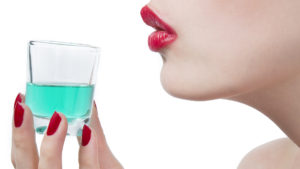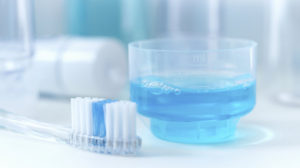There are a lot of instances that mouthwash comes really handy. This has become a part of our daily oral health care routine that gives us the extra confidence whether it’s on casual encounters, social events, and job interviews. We became dependent and comfortable with the trusted mouthwash that somehow the actual content of our daily oral health practice buddy is overlooked.
As consumers, you simply look at its ability to kill the bacteria, keep our mouth clean, and most especially leave a fresh breath. A thought that does not cross your mind as you blindly grab one from the stores and use it on the daily. Seeing it in commercials make it all the more alluring.
Although it’s true that the harsh alcohols and antimicrobials prevent periodontal disease and bad breath, the underlying effects of the alcohol-based compound are not well known. There is a more profound and a domino-like effect on using mouthwash on your mouth than the instant clean and fresh feeling you get.
Every brand varies but as mouthwash goes, it usually contains chlorhexidine that fulfills what commercials would tell you, fight the bacteria which cause plaque and bad breath. This is one of many strong antimicrobials found on mouthwash. But a chemical like cetylpyridium chloride, which is present in some types of mouthwash, can not only give a burning sensation to the mouth; but also cause staining of the teeth to the user. Not to mention it has a lesser capability to fight plaque.
You can bet all the bad bacteria would die after using the product but so will the good bacteria that actually live naturally in your mouth. This would eventually cause future oral health problems as this leads to imbalance caused by the uneven growth of the good and bad bacteria when it grows back. And like everything in nature, balance is always the key to keep a healthy ph in the mouth. Dryness and the lack of saliva that keep the moisture and maintain the alkalinity of the mouth can also lead to halitosis or bad breath. Traces of the chemicals of your mouthwash are also absorbed by the lining in your mouth; so much for not swallowing it when you actually are absorbing it whilst in your mouth.
Going natural is one of the best ways to keep from all the horrid side effects of harsh chemicals. This can be thought of as a gentler and a more user-friendly approach or change in your oral hygiene. The usual brushing, flossing can actually help you protect your pearly whites and gums in the long run. The natural composition of your mouthwash gives you that extra line of security and you can take comfort in the fact that your body is absorbing natural chemicals. No more burning and irritation on the lining of your mouth. You can now have stronger teeth plus you can avoid the chain of risks.
Should you experience the risks of dental issues due to poor oral care, you can always consult a dentist that is open on Sunday. These emergency dentists work full-time, including weekends and holidays.

